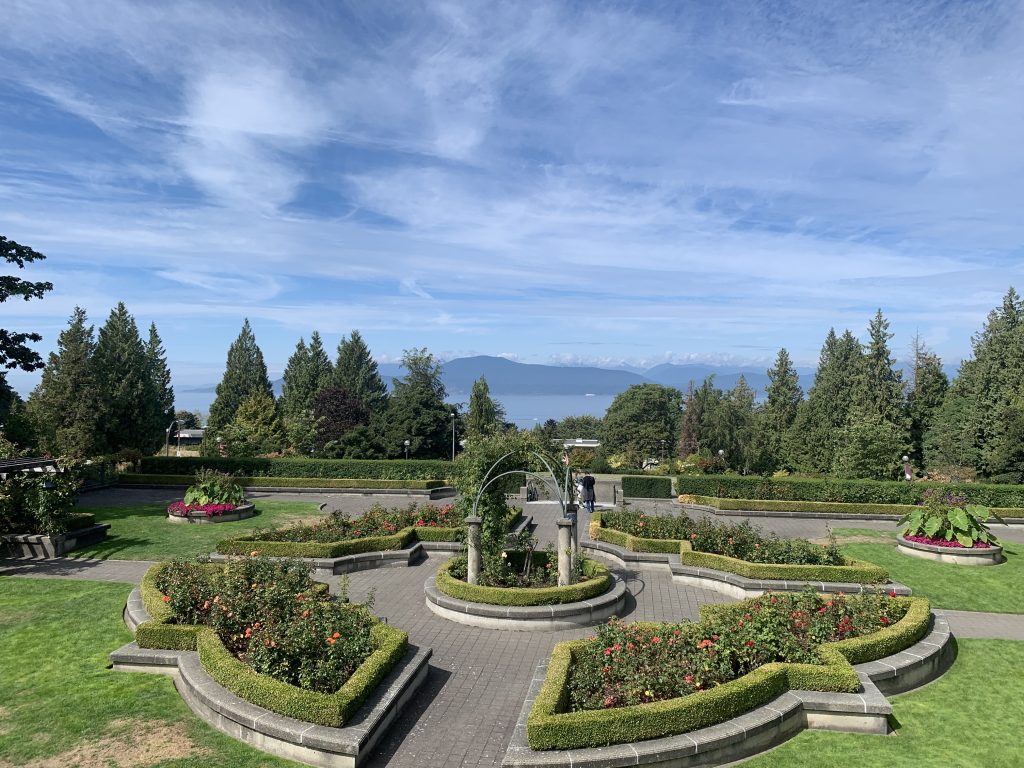The UBC Rose Garden is one of the most recognizable attractions on UBC’s Vancouver campus. With stunning views of Bowen Island and the Strait of Georgia, many UBC alumni capture their graduation photos in this beautiful, flowering space to highlight the last of many special university experiences. The garden is also a preferred choice among newlyweds-to-be to tie the knot.
I arrived in Vancouver in late August of 2021 and took the included photograph on my very first visit to UBC. In the final days of summer, I caught the tail-end of the blooming season of the garden’s diverse flora. I grew up two-hundred miles away in Seattle, a place that seems to me like Vancouver’s evil twin. With very similar climates and cultures, I didn’t worry too much about feeling out of place once I got here. While that was mostly that case—Vancouverites use umbrellas, whereas their Washingtonian neighbors hardly ever do—university life was a completely different beast. The garden was a gorgeous, open space that miraculously wasn’t chock-full of students, unlike many other UBC locations. I frequented the garden in my early days on campus because it was quiet, and it felt like a place where I could be alone. I had never had a roommate before, nor had I ever taken a class with more than thirty people. The garden helped ease my transition to university and dorm life, and embrace it for its differences.
The importance of the Rose Garden, and urban gardens in general, is the role it plays in creating clean, beautiful public spaces were everyone feels welcome. Growing up in Seattle, as I have mentioned, made me no stranger to housing crises and struggles facing the unhoused. Tent cities all across the I-5 corridor are a constant reminder that Washington has a long way to go to make housing affordable. I am not as familiar with the topic and how it relates to Vancouver, but from what I understand, Vancouver has “the least affordable housing market in North America” (Grigoryeva & Ley). In addition to the massive inflation of prices, food insecurity affects almost twelve-percent of households in British Columbia—a figure that has only risen since 2008 (Holmes et. al).
I believe that it is crucial to allow people to enjoy the city they live in without feeling ostracized by issues that are majorly beyond their control. The UBC Rose Garden created a new sense of identity and belonging for me as an incoming transplant with its free and open access. Having more gardens, especially gardens with an added focus of growing produce and foodstuffs, builds community regardless of personal background and provides a connection to the outdoors and an outlet to everyday causes of stress or even loneliness. Gardens are often prided for their beauty, a careful combination of nature and human intervention; however, beauty doesn’t have to just come from flowers and picturesque views, but from cultivation and growth among flourishing communities.

UBC Rose Garden, August 2021 (Hill)
References